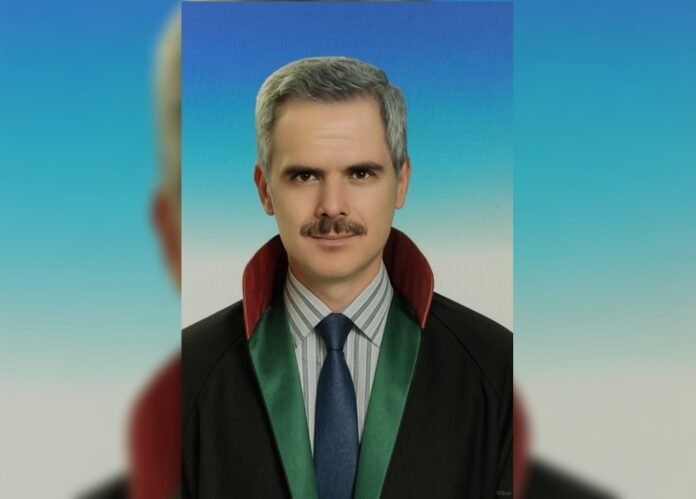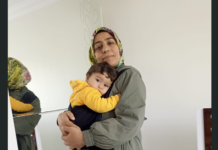A Turkish lawyer in intensive care was ordered to travel to Istanbul for a forensic medical review, despite doctors warning that he is too ill to withstand the trip, TR724 news website reported.
Süleyman Yıldırım, 56, has been held in Denizli T-Type Prison since July 27, when he was arrested while receiving treatment at a local hospital. For nearly two months, he received no medical care in prison, his lawyers say. On September 6, his condition became critical and he was admitted to the intensive care unit of Denizli State Hospital.
There, he underwent heart surgery and later suffered a blood clot. Doctors warned his legs risked amputation and that fluid buildup in his lungs may point to cancer. He has remained in intensive care for nearly three weeks.
Physicians at the hospital issued a report stating that Yıldırım “cannot stay in prison” and “cannot travel even for medical checkups.” They warned that his condition is “very severe” and carries a high risk of death. Despite this, the Council of Forensic Medicine (ATK) in Istanbul summoned him to appear in person as part of its review of his request to suspend his sentence for medical treatment.
Yıldırım, a father of five, has practiced law in Denizli since graduating from Dokuz Eylül University in 1991. He was first arrested in the aftermath of a failed coup in July 2016 and sentenced to more than six years in prison on alleged links to the faith-based Gülen movement. The court cited his use of the encrypted messaging app ByLock, deposits made in Bank Asya, a shuttered bank linked to the group, and his children’s enrollment in schools later closed by emergency decree.
Turkish President Recep Tayyip Erdoğan has been targeting followers of the Gülen movement, inspired by the late Turkish Muslim cleric Fethullah Gülen, since the corruption investigations of December 17-25, 2013, which implicated then-prime minister Erdoğan, his family members and inner circle.
Dismissing the investigations as a Gülenist coup and a conspiracy against his government, Erdoğan began to target the movement’s members. He designated the movement as a terrorist organization in May 2016 and intensified the crackdown on it following an abortive putsch in July of the same year that he accused Gülen of masterminding. The movement strongly denies involvement in the coup attempt or any terrorist activity.
Since the coup attempt, the Turkish government has accepted such activities as having an account at now-shuttered Bank Asya, one of Turkey’s largest commercial banks at the time; using the ByLock messaging application, an encrypted messaging app that was available on Apple’s App Store and Google Play; and subscribing to the now-shut-down Zaman daily or other publications affiliated with members of the movement as benchmarks for identifying and arresting alleged followers of the Gülen movement on charges of membership in a terrorist organization.
Yıldırım served 10 months in prison before being released while his appeal was under consideration, but Turkey’s top appeals court upheld his conviction this year, leading to his re-arrest on July 27.
International legal groups have raised alarm over his case. “Failing to suspend Yıldırım’s sentence under these conditions amounts to knowingly sending him to his death,” Ali Yıldız, director of The Arrested Lawyers Initiative, said. The group and the International Bar Association’s Human Rights Institute report that since 2016, more than 550 Turkish lawyers have been sentenced to a combined 3,350 years in prison.
Yıldırım’s health crisis comes as rights groups highlight the deaths of other ailing prisoners with alleged Gülen ties. In August and September, at least three men — Hüseyin Parlak, 70, who died of a brain hemorrhage during a heatwave; İbrahim Güngör, 72, an Alzheimer’s patient who succumbed to pneumonia; and Asaleddin Çelik, 52, who died of lung cancer shortly after a delayed release — all passed away in custody or shortly afterward.
According to Law No. 5275, the sentence of a prisoner who, due to a serious illness or disability, is unable to manage life on their own under prison conditions and who is not considered a serious or concrete danger to society, may be suspended until they recover. However, the stipulated suspension of sentence is often not implemented.
The Human Rights Association (İHD) says more than 1,400 sick prisoners are currently held in Turkey, including hundreds in critical condition. Complaints include delays in transferring inmates to hospitals, inadequate treatment in prison clinics and forensic reports that allow seriously ill detainees to remain incarcerated.
Turkey recorded 709 deaths in prison in the first 11 months of 2024, according to data from the Ministry of Justice shared in response to a parliamentary inquiry.















